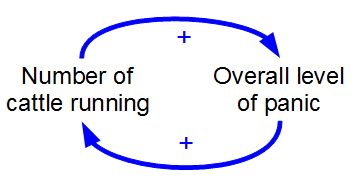|
Wind-induced Surface Heat Exchange
The wind-induced surface heat exchange (WISHE) is a positive feedback mechanism between the ocean and atmosphere in which a stronger ocean-to-atmosphere heat flux results in a stronger atmospheric circulation, which results in a strong heat flux. It has been hypothesized that this is the mechanism by which low pressure areas in the tropics develop into tropical cyclones. The WISHE mechanism was proposed by Kerry Emanuel in a ''Journal of the Atmospheric Sciences The ''Journal of the Atmospheric Sciences'' (until 1962 titled ''Journal of Meteorology'') is a scientific journal published by the American Meteorological Society. It covers research related to the physics, dynamics, and chemistry of the atmosphe ...'' article published in 1986though it was first termed "air–sea interaction instability"as an alternative to the more prevalent conditional instability of a second kind (CISK) hypothesis. References {{Tropical-cyclone-stub Tropical cyclone meteorology ... [...More Info...] [...Related Items...] OR: [Wikipedia] [Google] [Baidu] |
Positive Feedback
Positive feedback (exacerbating feedback, self-reinforcing feedback) is a process that occurs in a feedback loop where the outcome of a process reinforces the inciting process to build momentum. As such, these forces can exacerbate the effects of a small disturbance. That is, the effects of a perturbation on a system include an increase in the magnitude of the perturbation. That is, ''A produces more of B which in turn produces more of A''.Keesing, R.M. (1981). Cultural anthropology: A contemporary perspective (2nd ed.) p.149. Sydney: Holt, Rinehard & Winston, Inc. In contrast, a system in which the results of a change act to reduce or counteract it has negative feedback. Both concepts play an important role in science and engineering, including biology, chemistry, and cybernetics. Mathematically, positive feedback is defined as a positive loop gain around a closed loop of cause and effect. That is, positive feedback is Phase (waves), in phase with the input, in the sense that ... [...More Info...] [...Related Items...] OR: [Wikipedia] [Google] [Baidu] |
Tropical Cyclones
A tropical cyclone is a rapidly rotating storm system with a low-pressure area, a closed low-level atmospheric circulation, strong winds, and a spiral arrangement of thunderstorms that produce heavy rain and squalls. Depending on its location and strength, a tropical cyclone is called a hurricane (), typhoon (), tropical storm, cyclonic storm, tropical depression, or simply cyclone. A hurricane is a strong tropical cyclone that occurs in the Atlantic Ocean or northeastern Pacific Ocean. A typhoon is the same thing which occurs in the northwestern Pacific Ocean. In the Indian Ocean and South Pacific, comparable storms are referred to as "tropical cyclones". In modern times, on average around 80 to 90 named tropical cyclones form each year around the world, over half of which develop hurricane-force winds of or more. Tropical cyclones typically form over large bodies of relatively warm water. They derive their energy through the evaporation of water from the ocean s ... [...More Info...] [...Related Items...] OR: [Wikipedia] [Google] [Baidu] |
Kerry Emanuel
Kerry Andrew Emanuel (born April 21, 1955) is an American professor of meteorology currently working at the Massachusetts Institute of Technology in Cambridge. In particular he has specialized in atmospheric convection and the mechanisms acting to intensify hurricanes. Research He hypothesized in 1994 about a superpowerful type of hurricane which could be formed if average sea surface temperature increased another 15C more than it's ever been (see " hypercane"). In a March 2008 paper published in the ''Bulletin of the American Meteorological Society'', he put forward the conclusion that global warming is likely to increase the intensity but decrease the frequency of hurricane and cyclone activity. Gabriel Vecchi, of NOAA said of Emanuel's announcement, "While his results don't rule out the possibility that global warming has contributed to the recent increase in activity in the Atlantic, they suggest that other factors—possibly in addition to global warming—are likely to hav ... [...More Info...] [...Related Items...] OR: [Wikipedia] [Google] [Baidu] |
Journal Of The Atmospheric Sciences
The ''Journal of the Atmospheric Sciences'' (until 1962 titled ''Journal of Meteorology'') is a scientific journal published by the American Meteorological Society. It covers research related to the physics, dynamics, and chemistry of the atmosphere of Earth and other planets, with emphasis on the quantitative and deductive aspects of the subject. See also * List of scientific journals in earth and atmospheric sciences This list presents notable scientific journals in earth and atmospheric sciences and its various subfields. Multi-disciplinary Atmospheric science Geochemistry * ''Chemical Geology'' * '' Geochimica et Cosmochimica Acta'' * '' Geostan ... References External links * English-language journals Monthly journals Academic journals established in 1944 American Meteorological Society academic journals {{climate-journal-stub ... [...More Info...] [...Related Items...] OR: [Wikipedia] [Google] [Baidu] |
Conditional Instability Of A Second Kind
Conditional (if then) may refer to: *Causal conditional, if X then Y, where X is a cause of Y *Conditional probability, the probability of an event A given that another event B *Conditional proof, in logic: a proof that asserts a conditional, and proves that the antecedent leads to the consequent *Material conditional, in propositional calculus, or logical calculus in mathematics *Relevance conditional, in relevance logic *Conditional (computer programming), a statement or expression in computer programming languages *A conditional expression in computer programming languages such as ?: *Conditions in a contract Grammar and linguistics *Conditional mood (or conditional tense), a verb form in many languages *Conditional sentence, a sentence type used to refer to hypothetical situations and their consequences **Indicative conditional, a conditional sentence expressing "if A then B" in a natural language **Counterfactual conditional, a conditional sentence indicating what would b ... [...More Info...] [...Related Items...] OR: [Wikipedia] [Google] [Baidu] |
